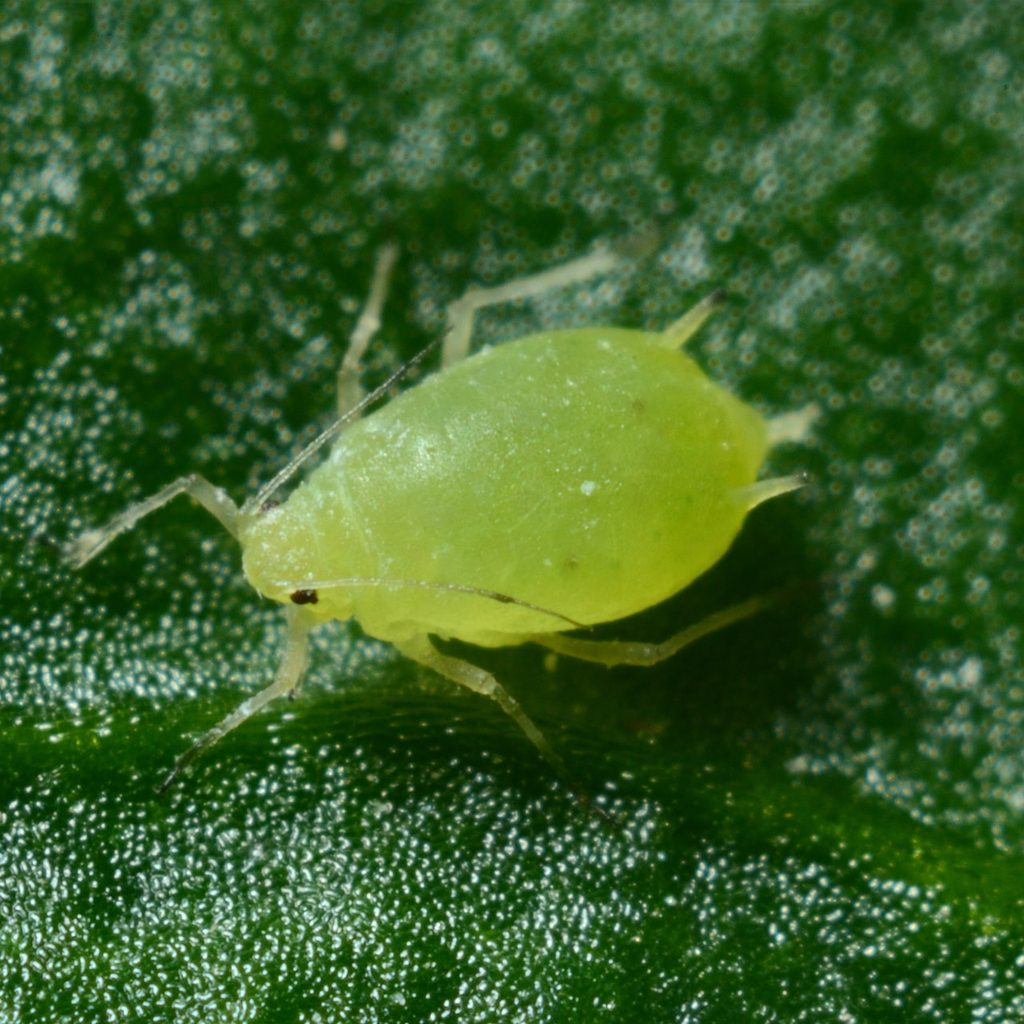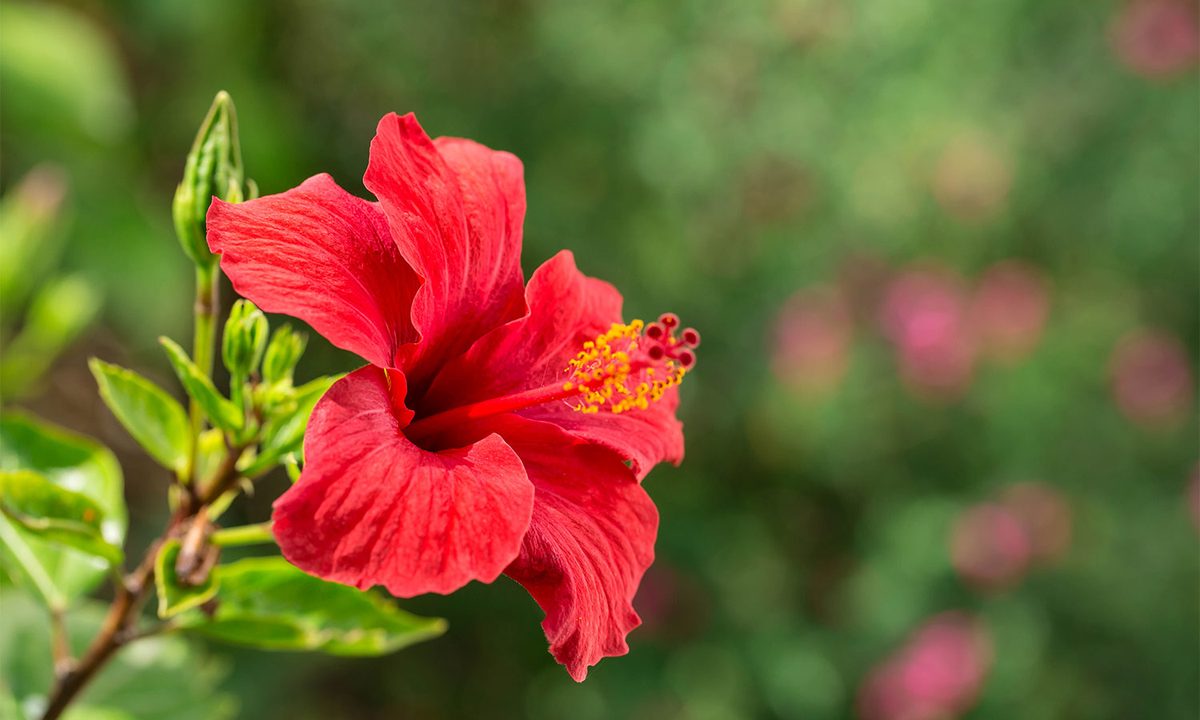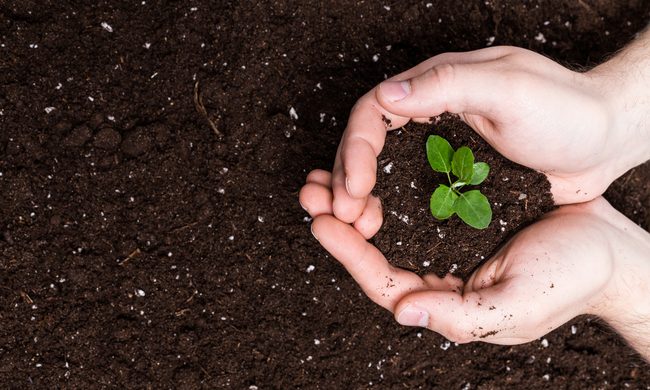Identifying pests on your hibiscus plant is the first step to protecting this gorgeous flower from bugs and insects. Once you know which unwanted guests are attacking your plant, you can come up with a battle plan to get rid of them so your flowers will thrive again. If left untreated, these hibiscus pests can damage the leaves and flowers as well as spread bacteria and diseases throughout your plant.
Some common insects that destroy hibiscus are aphids, ants, thrips, coast flies, fungus, and mosquitoes. Most hibiscus plants become infected by insects due to poor management techniques. Watering and feeding your plant properly will help develop its resistance to these pests.
Another method of protecting them from insects is to encourage the growth of natural predators like beetles and dragonflies. In this article, you will learn all about how to get rid of bugs on your hibiscus plant, what kind of bugs like hibiscus flowers, and whether vinegar will kill aphids that often attack hibiscus plants.

How do I get rid of bugs on my hibiscus?
White bugs and other insects on the hibiscus plant can be terminated safely, easily, and effectively by the use of soap and water spray. You can get rid of these intruders by following these processes:
Step 1: Put three to five drops of your dishwashing liquid into a spray bottle.
Step 2: Fill the bottle to the brim with water and shake it to create soap lather.
Step 3: Spray the plants wherever you see white bugs.
Step 4: Wash the soap and dead bugs off the plants.
Step 5: Repeat every week or two to eradicate egg hatchlings and adult bugs.
Step 6: Use an insecticidal soap if the infestation persists for more than three weeks. This is a tested and validated way of completely getting rid of bugs on your hibiscus.
Step 7: Keep the plant healthy. This is the key to getting rid of pests on hibiscus plants.

What kind of bugs like hibiscus flowers?
The hibiscus flower is prone to bug infestations by the following:
Mealybugs
These are small, soft insects that thrive by sucking the sap from the plant. They multiply rapidly and are capable of destroying hibiscus flowers quickly. They are protected with cotton-like, waxy substances. Because of how rapidly mealybugs spread, it is important to isolate the infected plants the moment you notice anything wrong. Mealybugs are vulnerable to a variety of predatory insects — think wasps and lady beetles. Heavy rain can also help in keeping their population down.
White flies
These are small bugs typically found feeding on the backside of the leaf. They are also related to mealybugs. These insects suck the plant sap and produce a sticky substance called honeydew, which attracts fungal infections that weaken your plants and reduce their photosynthesizing capability. This causes the leaves to turn yellow, which can result in the death of the plant. The best way to protect the hibiscus plant from this insect is to maintain its overall health.
Thrips
Generally, these puncture the outer layer of the plant and suck the juices from the plant. An infested hibiscus plant will become discolored and withered. The same management practices for mealybugs apply to thrips.
Aphids
These are the most common type of insects found in hibiscus. They are small black, green, or white insects that invade the plant’s bud and flowers and can normally be seen at the top of the stems or sometimes on the blooms. These insects suck the nutrient-rich liquids out of plants. They reproduce at an alarming frequency, which weakens the plant significantly and eventually destroys it. These intruders should be treated immediately. Although crisps and ladybugs feed on this insect, they do not completely rid the flowers of these pests.

Will vinegar kill aphids on the hibiscus flower?
Like dishwashing soap, vinegar is lethal to insects and especially aphids. Vinegar should not to be used directly on hibiscus plants. Here's what to do:
Step 1: Mix 1 tablespoon of vinegar with about three to four drops of dishwashing liquid in a gallon of water.
Step 2: Use a spray bottle to spray the tops and bottoms of the leaves lightly.

What are some basic care tips for preventing hibiscus pests?
Proper hibiscus care is a simple way to prevent pest damage. Pests are attracted to certain conditions, and preventing those conditions will lessen the likelihood of them wreaking havoc on your beautiful blooms. As you care for your hibiscus flowers, here are some pointers to keep in mind.
Step 1: Always use clean pots and tools for handling your hibiscus — garden supplies that aren't properly sanitized can pass on pests.
Step 2: Prune your leaves to encourage air circulation, which encourages photosynthesis and keeps your plant healthy.
You usually want to prune before new buds set, but pruning is also warranted whenever you have intersecting, diseased, or dead branches, which can easily become breeding grounds for pests or leave your plant vulnerable to pest damage.
Step 3: Pick up leaves and blooms that have shed — these can be great hiding spots for bugs.
Step 4: Make a habit out of checking the undersides of your leaves to address small pest problems before they become full-blown infestations.

How do you encourage beneficial insects to protect your hibiscus plants?
You can also encourage beneficial insects to come into your garden to provide your hibiscus flowers with added protection. Beetles, lacewings, dragonflies, ladybugs, and parasitic wasps can help keep hibiscus pests at bay by preying on the bad bugs. There are a few ways to attract beneficial insects:
Step 1: Plant flowers that draw in beneficial insects.
Flowers that you can plant in your garden include cosmos, dandelions, asters, marigolds, and Queen Anne's lace. Other than looking beautiful, these blooms will draw in beneficial bugs to protect your hibiscus flowers.
Step 2: To form a welcoming environment for the good bugs, create an insect bath by leaving out a shallow container with stones slightly covered in water.
Providing a fresh drinking spot, this bath should attract the beneficial bugs. Make sure to use large stones and don't add too much water, which could potentially drown the insects.
Though it sounds like a daunting task, protecting hibiscus plants from insects really is achievable. Carefully tend your hibiscus and look closely for any pests or changes in your plant’s appearance. You can also encourage the growth of predators such as beetles and dragonflies.



